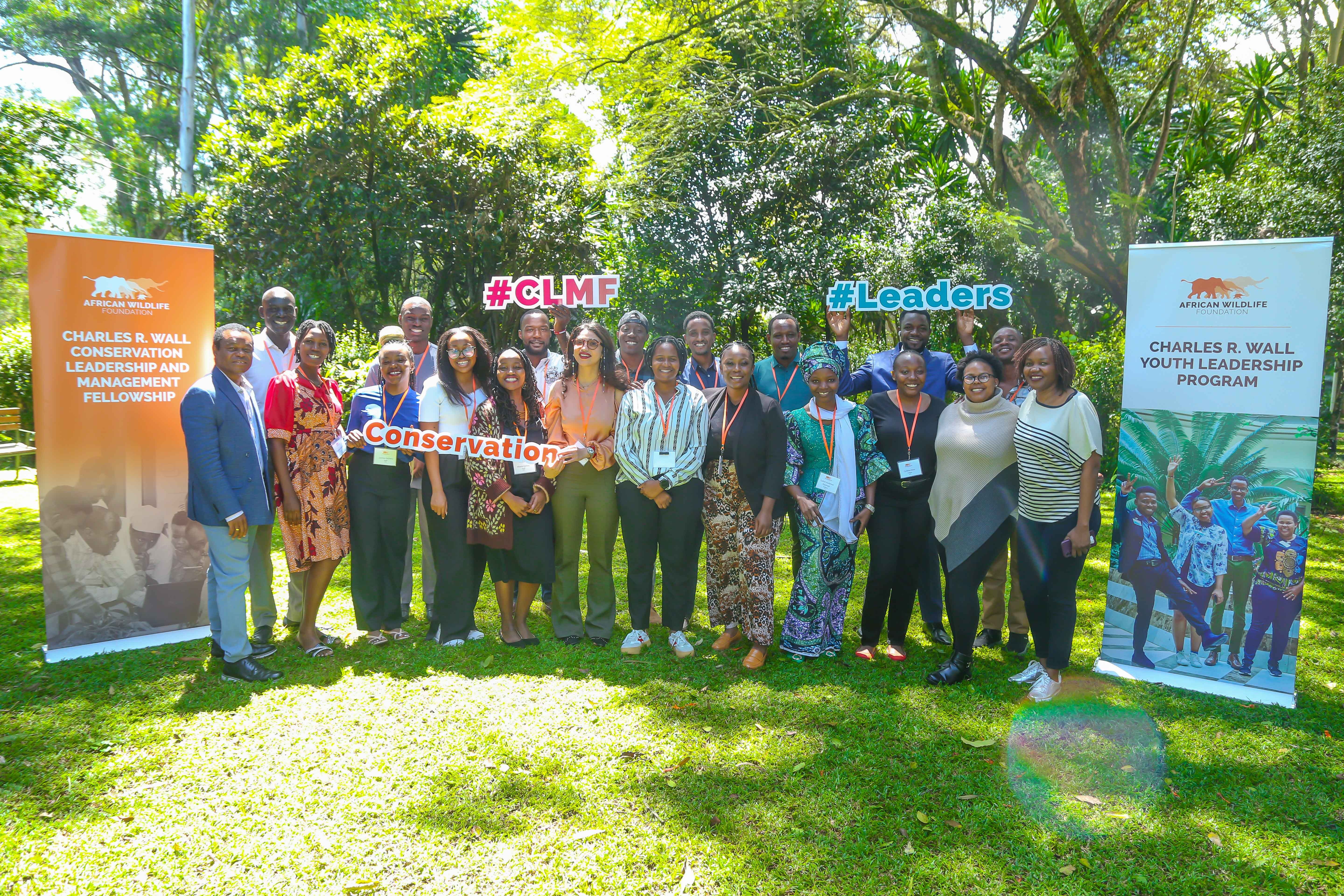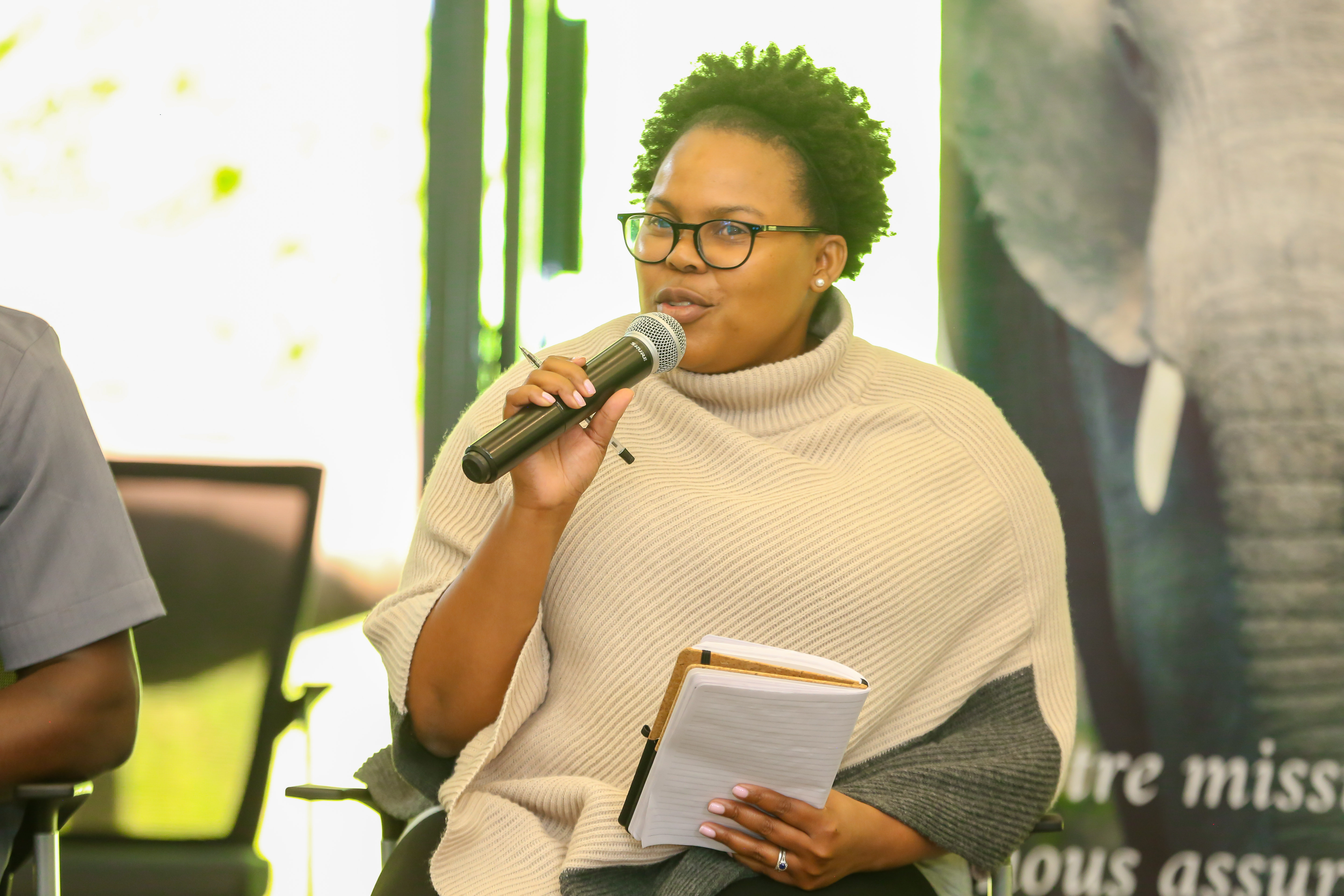Africa Day: Why AWF is Engaging Africa’s Youth in Conservation

2024 Cohort of AWF Charles R Wall Management Fellows
Africa’s youth, comprising approximately 70% of the continent’s population, are projected to make up 42% of the global youth population by 2030, according to the World Economic Forum. Despite this demographic surge, African leadership remains predominantly older, failing to mirror the vibrant energy of its populace. However, in the field of conservation, efforts to engage youth and amplify their voices have significantly increased, with the African Wildlife Foundation (AWF) leading the way.
"Africa Day, observed every year on May 25th, commemorates the establishment of the African Union (AU), formerly known as the Organization of African Unity (OAU). It recognizes the progress achieved by African countries in areas like the economy, education, and infrastructure, and provides a forum to tackle shared issues such as poverty, climate change, and political instability."
As we commemorate Africa Day, we are reminded of the continent’s unity, collective strength, rich history, and the resilience of its people. At AWF, we acknowledge the vital role of conservation in securing Africa’s future. We firmly believe in empowering the youth to cultivate robust conservation leadership. We spoke with Simangele Msweli, AWF’s Senior Manager of Youth Leadership, who shared insights into how AWF nurtures the next generation of conservation leaders and fosters collaboration among Africa’s diverse youth.
Question: As African economies grow, why is it essential to involve young people in conservation, and what strategies can be employed to reach them considering the continent’s diverse conditions?

AWF Senior Manager Youth Program Simangele Msweli during the In-Person Workshop for the 2024 Charles R Wall Management Fellows
Simangele: Conservation extends beyond the preservation of flora and fauna. It directly influences our daily lives, impacting the food we eat, the water we drink, the air we breathe, and our general health. Acknowledging this interconnection can promote an understanding of the importance of conservation.
Amid a surge in the youth population, conservation can serve as a key driver for economic development and job creation. For instance, the latest National Biodiversity Assessment of South Africa discloses that around half a million jobs in the nation are tied to biodiversity-related sectors. By enhancing this awareness among Africa’s burgeoning professionals, we can aid them in grasping the importance of conservation and advocating for it in their respective areas.
Question: How do AWF programs cater to the diverse interests and skill gaps among Africa’s youth in the fields of conservation, biodiversity laws, and climate change?
Simangele: Given the diversity of interests among Africa’s youth, our programs are specifically designed to bridge the skill gaps in conservation. For example, the AWF Charles R. Wall Conservation Leadership and Management Fellowship is designed for youth who are active change-makers on the ground, irrespective of their roles within their organizations. On the other hand, the Charles R. Wall Young African Policy Fellows program is aimed at those who aspire to influence policies at the national, regional, or international level. This approach ensures that we cater to the varied interests and aspirations of Africa’s youth.
Question: How does the AWF engage with and support youth networks to promote environmental sustainability?
Simangele: At AWF, we actively support and collaborate with various networks to enhance their impact. For example, we are in the process of organizing an assembly with the Catholic Youth Network on Environmental Sustainability. We also engage with the Africa Chapter of the Global Youth Biodiversity Network, with a particular focus on supporting their African Youth Summit on Biodiversity. We acknowledge that the youth are already mobilizing and showing urgency for environmental issues, so we partner with these platforms and provide support to extend their reach.
Furthermore, AWF is committed to creating spaces for dialogues and discussions by inviting experts from diverse sectors. Last year, we conducted a series of online dialogues known as the China-Africa series, where we invited speakers from the fashion industry and the infrastructure industry, among others. Moving forward, our goal is to continue advocating for this work and creating educational spaces for the youth to understand the interconnection of various sectors with conservation. This approach ensures that we effectively engage the youth in our conservation efforts.
Question: What are the perceptions and realities of Gen Z’s attitudes toward environmental conservation, and how can these be leveraged to promote conservation?
Simangele Msweli and Fred Kumah during the fourth meeting of the Subsidiary Body on Implementation SBI -4
Simangele: Contrary to the perception that Gen Z is indifferent or uninformed about environmental issues, surveys reveal that over 70% of young people understand climate change and its impacts on their livelihoods, such as droughts and floods. The key strategy is to engage Gen Z on platforms they frequent, like TikTok, by providing educational content related to conservation. There are numerous instances of Gen Z championing causes via social media, indicating a significant opportunity for conservation efforts to tap into this potential.
Question: What is AWF’s vision for the role of young people in shaping the future of conservation efforts in Africa?
Simangele: The AWF envisions these youth networks as collaborative entities striving towards mutual goals. Our primary concern is to ensure the sustainability of these networks for future generations. We acknowledge that one of the challenges with youth networks is their transient nature. Therefore, our focus is on nurturing relationships within these youth networks and enhancing their organizational capabilities.
In doing so, we aim to ensure their continuity, enabling them to effect real change and promote a prosperous future for wildlife and wild lands.